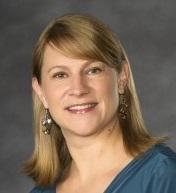The transport and control of physiological fluids and metabolites is critical to human health yet remain difficult to measure and quantify. Computational modeling provides a method for combining mathematics, engineering, and physiology to simulate dynamics of physiological transport, which aids in understanding the bases of both health and disease that are difficult to assess noninvasively. In this talk, I will describe several studies that use compartmental models to describe system-level changes in response to stimuli in the cardiovascular and respiratory systems. These models are made subject-specific by verifying against patient data and thus may have predictive value.
Dr. Ellwein Fix is an associate professor at VCU in the Department of Mathematics and Applied Mathematics and an active part of the department’s research in Mathematical Biology. She grew up in Milwaukee, Wisconsin and attended UW – Madison where she got a BS in chemical engineering. After a four-year detour making cereal for General Mills, she then earned her PhD in applied mathematics from North Carolina State University in 2008, with concentrations in physiology and computational mathematics. Prior to VCU she held a postdoctoral fellowship at Marquette University in the biomedical engineering department.
Dr. Ellwein Fix’s group develops mathematical models to simulate and analyze dynamics in cardiopulmonary physiology, including simulations of transport processes and control in response to system disturbances. She is particularly motivated by the use of patient-specific and often non-invasive data to predict behavior at the individual level. This work is highly interdisciplinary and requires collaborations with researchers in biomedical engineering, medicine, and exercise science.
Come early at 3:30 p.m. to meet our speaker and enjoy some refreshments in Ruffner 354.


